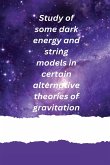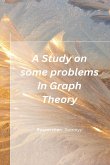General Relativity is widely accepted as a fundamental theory to describe the geometric properties of spacetime.In a homogeneous and isotropic spacetime the Einstein field equations give rise to the Friedmann equations that describe the evolution of the universe.In fact,the standard big bang cosmology based on radiation and matter dominated epochs can be well described within the framework of General Relativity. However the rapid development of observational cosmology shows that the universe has undergone two phases of cosmic acceleration.The first one is called inflation, which is believed to have occurred prior to the radiation domination.This phase is required not only to solve the flateness and horizon problems plauged in big bang cosmology,but also to explain a nearly flat spectrum of temperature anisotropies observed in Cosmic Microwave Background(CMB).The second accelerating phase has started after the matter domination.The unknown component giving rise to this late-time Cosmic acceleration is called dark energy.The existence of dark energy has been confirmed by a number of observations - such as supernova Ia (SN Ia),large scale structure,baryon acoustic oscillations (BAO) and CMB.
Hinweis: Dieser Artikel kann nur an eine deutsche Lieferadresse ausgeliefert werden.
Hinweis: Dieser Artikel kann nur an eine deutsche Lieferadresse ausgeliefert werden.








